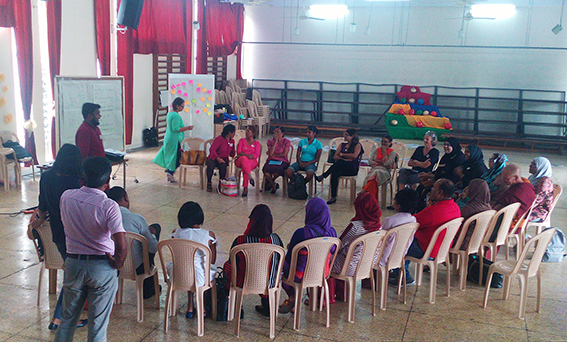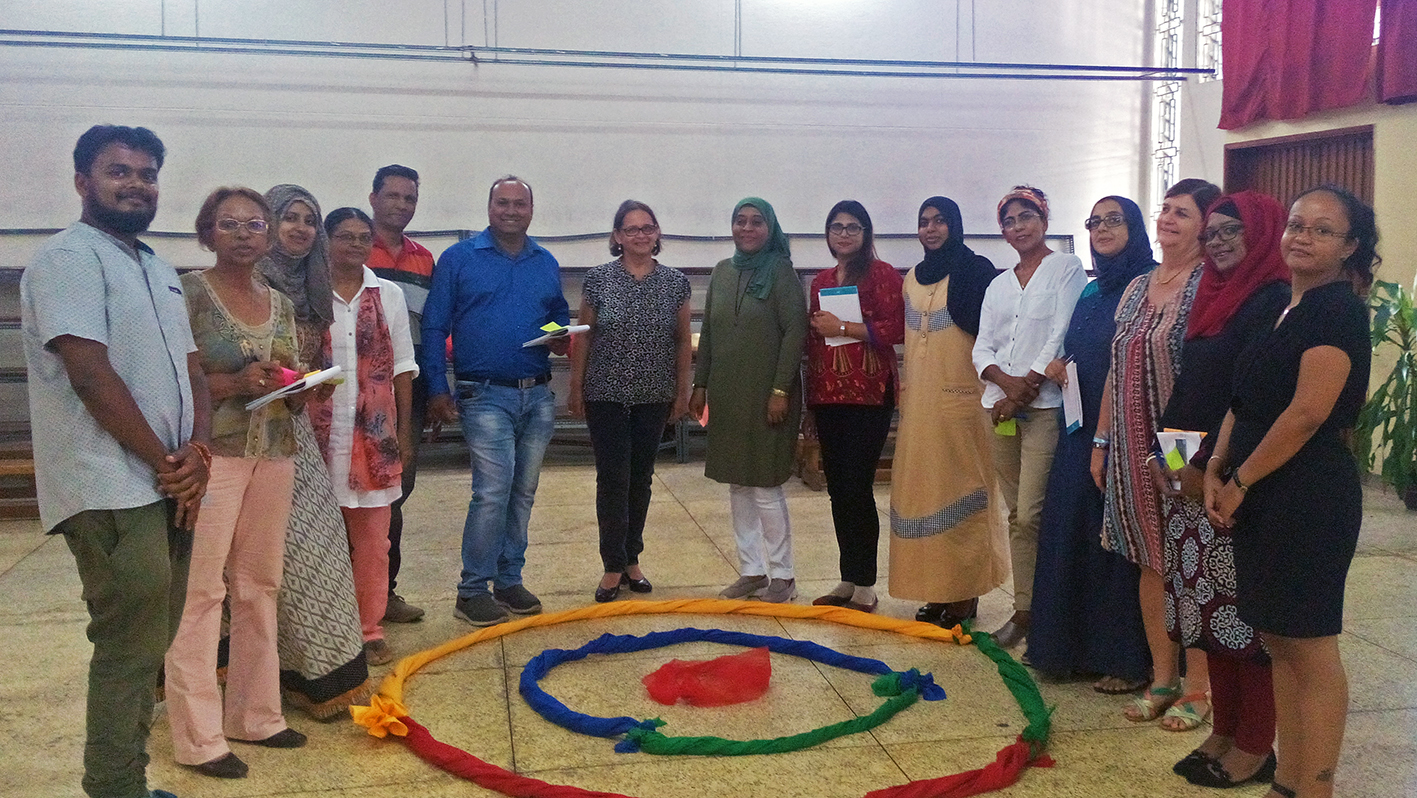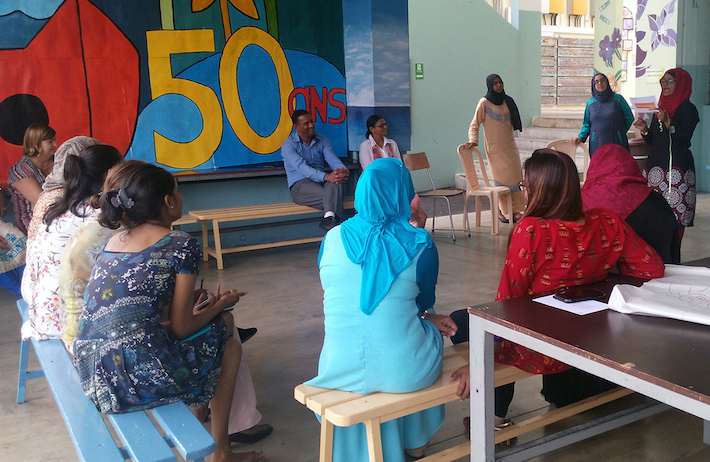
Arigatou International Geneva in collaboration with the Council of Religions of Mauritius co-organized a two-day introductory workshop on Ethics Education for Children on 5-6 April 2018, reaching 27 teachers from schools of Islamic, Christian, and Hindu religious backgrounds, together with two participants from the Reunion Islands.
The workshop was carried out in the context of an Intercultural Education (ICE) project implemented by the Council of Religions of Mauritius, which is designed to bring together 50 students and 12 educators from the three participating schools: The Islamic Cultural College, the Loreto College, and the DAV-Arya Sabha College.
The workshop gave participants a basic understanding of the Ethics Education approach and how it can be used to enhance the learning experience of children. Teachers had the opportunity to enter in dialogue, discuss pedagogical approaches to foster intercultural and interfaith learning, and reflect about the challenges and sensitivities of learning to live together.
A day before the workshop, the ICE project held an interfaith learning activity among the three participating schools. During the session, which was hosted by the Loreto College, children learned about Easter, one of the most traditional and distinctive commemorations in Christianism. The learning activity enabled a space for dialogue among children in order to engage with one another, to understand the importance, transitions, and practices related to Easter.
The learning session unfolded a unique opportunity to learn about the culture and religion of the other and was followed by a reflection on the key topics that affect living together in the diverse Mauritius society.
Following the workshop on Saturday, 7 April, the Council of Religions of Mauritius officially launched the ICE project at a special reception held in the presence of the Acting President of Mauritius, His Excellency Mr. P. Vyapoory, and Mrs. Kobita Jugnauth, spouse of the Prime Minister of Mauritius.
Both invitees highlighted the importance of creating such learning experiences for students and its role in strengthening a plural Mauritian identity.
We thank the Council of Religions of Mauritius for their collaboration, the team of trainers, Mr. Suchith Abeyewickreme, Ms. Dominique Avice, Ms. Sandrine Bargeole, and Mr. Rajendrakumar Dabee, for facilitating the workshop, and special gratitude is extended to Mr. Belall Maudarbux for his leadership.

